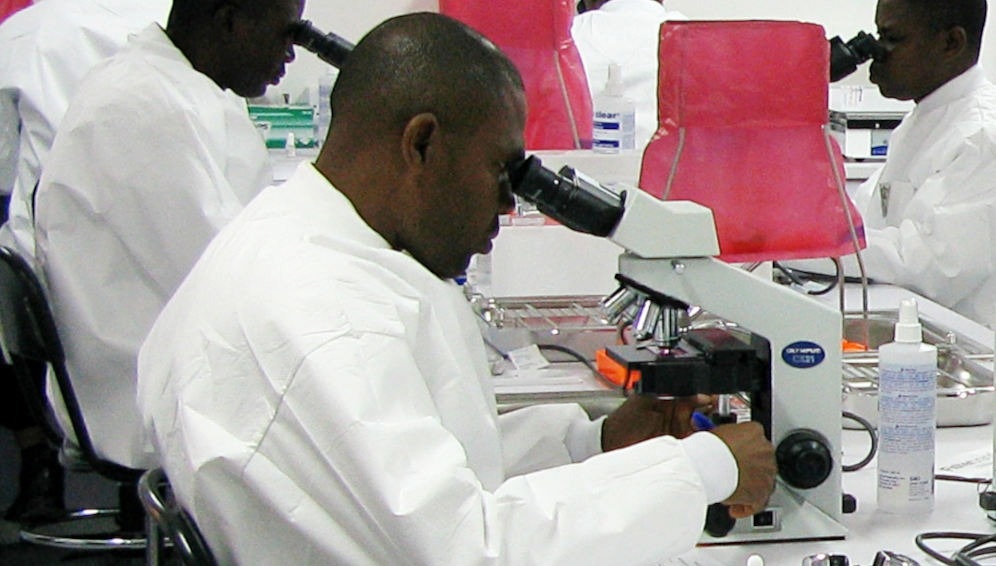Scientists from South Africa are experiencing the pain of the country’s ongoing power outages and are concerned about the impact the crisis is having on their research output.

Image Credit: US Army, (CC BY 2.0).
The crisis is caused by old infrastructure, poor management by the state-owned power utility Eskom, a lack of investment in the power sector, and a scarcity of energy resources.
Eskom Holdings SOC Ltd, South Africa’s primary energy provider, has been introducing load shedding, which involves enforcing power outages for a set number of hours each day across the country.
“Load shedding is done to protect the national electricity network by balancing supply and demand. If this is not done, the national grid will shut down entirely and the entire country will be blacked out for days to weeks,” tweeted Eskom on February 27th, 2023.
Nonhlanhla Vilakazi, a senior lecturer at the University of Johannesburg’s zoology department, highlighted that the frequent power cuts are affecting research in South Africa. “Load shedding has affected a lot of scientists and impacted their research outputs,” she says.
The frequency of the cuts ‘causes disruption to sample integrity in laboratories. Turnaround times of research and tests are vastly delayed. Financially, laboratories spend huge amounts on reagents and equipment, and the backup systems to keep up with load shedding aren’t cheap for laboratories that are already spending much to process samples.
Cola Mthembu, Doctoral Candidate, Department of Microbiology, University of South Africa
According to Mthembu, investigators must carefully monitor the planned load shedding times and attempt to work around them.
“Otherwise, it’s a matter of having backup power for essential samples or using various freezing methods that will assure sample integrity when the power eventually comes back,” she adds.
Having to adapt to different load shedding schedules has been a miserable experience for Mthokozisi Moyo, a Doctoral Candidate at the University of the Witwatersrand in South Africa’s department of animal, plant, and environmental science.
The frequency at which power supply cuts are happening causes disruption to sample integrity in laboratories.
Cola Mthembu, Doctoral Candidate, Department of Microbiology, University of South Africa
Moyo claims that in the digital age, he has been forced to return to the “old school” way of doing things. “I have been writing things down on paper and…then typing when I have access to power,” he details.
Gwede Mantashe, South Africa’s Minister of mineral resources and energy, stated earlier this month (February 6–9th, 2023) at the Mining Indaba conference that there was a long-term energy security plan in place to address the load shedding issue.
During his State of the Nation address on February 9th, 2023, South African President Cyril Ramaphosa declared a state of disaster due to the energy crisis.
However, in response to a constitutional challenge filed by the opposition party, Ramaphosa later stated that the responsibility for offering electricity lay solely with local authorities, not with him.
According to Lungile Mashele, an independent energy expert based in South Africa, load shedding has led to the loss of important samples and data, which could have a long-term impact on her research outputs.
She claims it is difficult to find alternative energy sources because mini sub-stations—electrical connection systems designed in smaller sizes—are expensive and inaccessible to the majority of South Africans.
According to Mashele, science plays a critical role in the development of alternative energy sources to supplement the current low capacity.
“Scientists must be at the forefront of tackling the power issue. We need to come up with ways to advance science without electricity,” Mashele says.
As researchers, we have been preaching about saving planet Earth. I think it is time to act and not rely on the government. I believe scientists must be at the forefront of tackling this power issue. We need to come up with ways to advance science without electricity, find new solutions, and work on building and manufacturing equipment that does not rely solely on electricity.
Nonhlanhla Vilakazi, Senior Lecturer, Zoology Department, University of Johannesburg